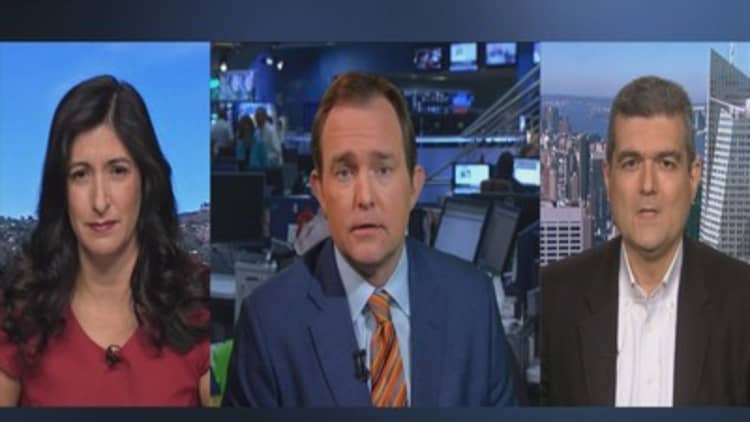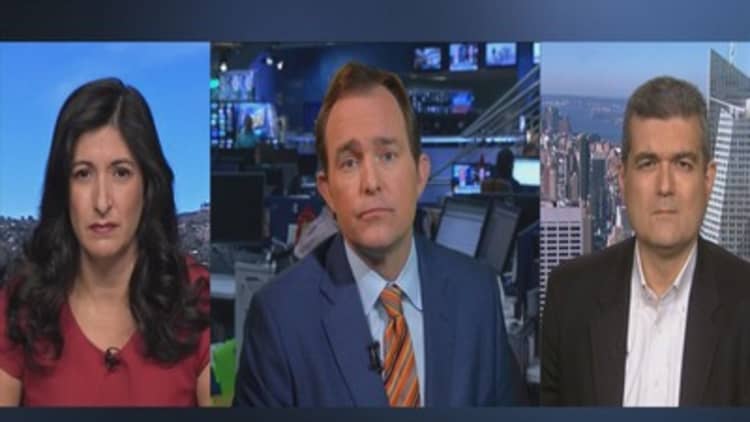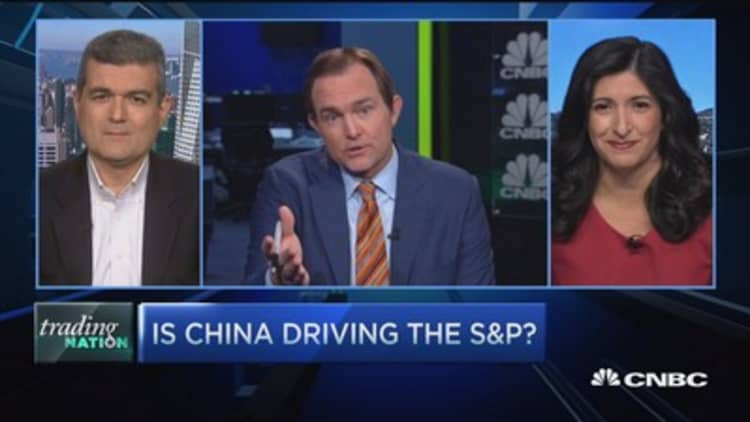


As crude prices spiral down further, investors are eyeing one specific market that traders say may have enormous consequences for global markets.
The Saudi Arabian riyal is currently pegged to the U.S. dollar, but the plunge in oil prices has increased speculation in the market that the world's largest oil exporter may let the 3.75-to-1 peg drop to accommodate a slowdown in revenue.
"I think this is the geopolitical story of 2016. If things get much worse, this could have massive ramifications politically and economically going forward," said Boris Schlossberg of BK Asset Management.
On Tuesday, crude oil dipped below $30 a barrel briefly for the first time since 2003. According to Schlossberg, this puts additional pressure on Saudi Arabia, which doesn't have the budget or reserves to deal with oil at such a low price.
"They can't sustain this too much longer. They have a lot of money in reserves, but they're going to eat through those reserves very, very quickly if oil does not go up and they can't get revenues up," Schlossberg said Tuesday on CNBC's "Trading Nation."
The Saudi government has insisted that the riyal won't lose its peg to the dollar. If Saudi Arabia did decide to unpeg its currency, that could shake the country's economy, as well as other markets around the world, said Gina Sanchez of Chantico Global.
Read MoreTalk of this black swan gains momentum
"Defending it is becoming more and more expensive, especially now that more people are betting against it. But if they were to abandon the peg, it would actually be far worse," Sanchez said. "The ripple effects certainly go to oil, but they will quickly go to the stock market and the rest of the currency markets."
According to a research note from Eurasia Group, Saudi Arabia will want to keep the dollar peg in order to to avoid market uncertainty and potential inflation.
"Beyond the economic impact, the dollar peg is a big anchor for expectations, and both markets and to a lesser extent the local population would perceive a depeg as a sign of weakness and a confidence shock in terms of financial stability," the research group said.
In a phone interview with CNBC, Eurasia Group's Greg Priddy said any riyal depegging scenario is more likely to occur a couple years rather than in 2016. And even with oil hovering at $30 levels, officials are still not looking to cut oil production, he said.
"I think what we're looking at right now is angst on the demand side, particularly in China, and whether we might exhaust storage capacity," he said Tuesday.
Instead, Saudi Arabia will need to wait for a demand-led recovery, he said, since cutting production could provide market share to Iran, a geopolitical enemy, and once again ramp up U.S. shale production.
Want to be a part of the Trading Nation? If you'd like to call into our live Wednesday show, email your name, number, and a question to TradingNation@cnbc.com







